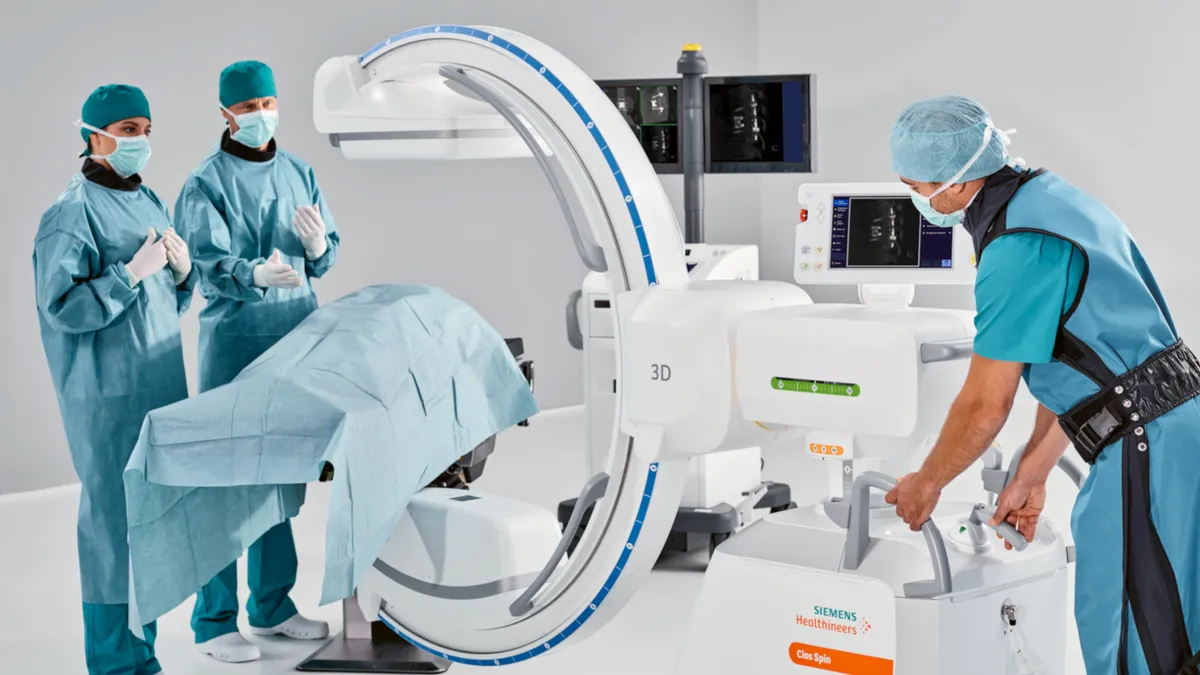Dive Brief:
- The Food and Drug Administration has cleared the integration of Siemens Healthineers’ mobile imaging into Intuitive’s robotic-assisted platform for minimally invasive lung biopsies.
- Integrating Siemens’ Cios Spin C-arm machine will let Intuitive’s Ion System provide 2D- and 3D- imaging during procedures. A single-center trial linked the integration to a 10% improvement in diagnostic yield.
- Analysts at RBC Capital Markets called the FDA clearance an “incremental positive” for Intuitive, adding that they see Ion as “an important leg of growth for the company.” Ion faces competition from Monarch, the robotic system Johnson & Johnson acquired in its takeover of Auris Health.
Dive Insight:
Intuitive received FDA clearance for the Ion in 2019. With its 3.5 mm catheter, the system is designed to enable physicians to navigate through small airways and access hard-to-reach nodules. In doing so, Ion could enable early diagnosis of lung cancer, improving patient outcomes.
Last year, Intuitive placed 93 Ion systems, growing its total installed base to 129. RBC analysts estimate the systems were used in around 7,500 procedures. In 2022, the analysts expect the installed base to more than double, with Intuitive forecast to place 152 systems and complete around 20,000 procedures. Including instruments, accessories and services, Ion revenues could hit $95 million.
Integrating Cios Spin, Siemens’ mobile C-arm intraoperative imaging system, is intended to help physicians refine the positioning of Ion’s catheter and improve the placement of the biopsy tool. Intuitive said Cios Spin improved diagnostic yield by 10% in a single-center study, although it has yet to share further details.
The robotic surgery company has shared more data on its base Ion system. Last year, Intuitive presented preliminary results on 69 subjects in a multi-center clinical trial. The trial linked Ion to an 83% diagnostic yield, which indicates the likelihood of tissue samples supporting diagnosis.
No patients suffered serious adverse events, offering Ion a potential point of differentiation from J&J’s Monarch. Two of the 54 participants in a Monarch study had a pneumothorax, or collapsed lung. Placement of a chest tube was required in one participant. Intuitive is expected to share full data from its Ion trial, which enrolled 365 participants, in the second half of the year.










